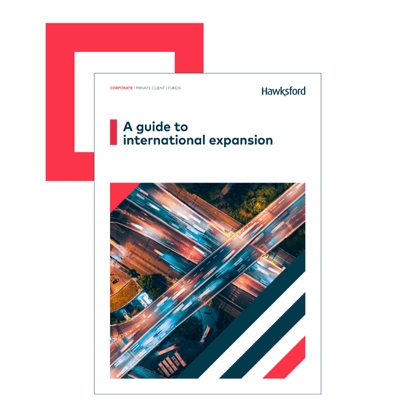According to the ASEAN Development Outlook (ADO) report, Southeast Asia is predicted to be the fourth-largest economy in the world by 2030. Countries such as Vietnam, Malaysia, and Thailand have gained traction from supply chain relocations – both before and during the pandemic – due to amenable “friend-shoring” strategies.
Singapore, in particular, has become a favoured destination for firms looking to enter this growing market. According to the latest data provided by Economic Development Board (EDB) in Singapore, Singapore attracted SG$12.7bn in fixed asset investment commitments in 2023. Investments in 2023 amounted to SG$8.9bn in total business expenditure (TBE) per annum; this was up from SG$6.2bn in 2022, and above EDB’s 2023 target of SG$5bn to SG$7bn.
Singapore-China business ties
Singapore stands as China’s ninth largest trading partner, while China is Singapore’s third largest trading partner, accounting for 10.1% of Singapore’s total external trade in 2023.
According to Singapore Business Federation’s (SBF) National Business Survey 2023/24, China is the second-largest country where Singapore companies have an overseas presence and the fourth country where they are planning future overseas expansions.
In 2022 alone, more than 500 Chinese companies were set up in Singapore. Official data on direct investment into Singapore shows that mainland China contributed SG$195.5bn of FDI into the economy in 2011, while Hong Kong contributed SG$75.6bn and Taiwan SG$7.21bn during the same period.
Notably, in 2021, Singapore also became the first nation to ratify the Regional Comprehensive Economic Partnership, of which China is now the largest member. The Chinese market’s appeal to Singapore businesses lies in its strong growth potential, well-developed trade infrastructure, and market readiness, while Singapore offers Chinese companies the connectivity and access to booming opportunities in the ASEAN region.
On 25 January 2024, the two countries also formally announced their decision to adopt a visa exemption policy for their nationals, enabling visits of up to 30 days. From 9 February 2024, individuals carrying regular passports and embarking on trips for tourism, family visits, or business reasons can enjoy the advantages of this new agreement. Signed in Beijing, it represents a notable step forward in fostering stronger connections between the two countries and streamlining travel for their citizens.
Singapore as the next global hub
Singapore is best known as a hub for regional headquarters and investments by multinational companies. Several factors including political stability, open business policies, a skilled workforce and advanced infrastructure continue to attract foreign firms – especially tech firms, startups and scaleups.
According to Steven Okun, Chief Executive of ESG and sustainability consultancy firm APAC Advisors in Singapore, a safe and stable environment, centred in one of the world's fastest-growing markets, coupled with a regulatory framework designed for tech companies and entrepreneurs, has created a global tech hub for the 21st century. Singapore's advantages have made it a location of choice for technology talent and capital.
He added that Singapore's trio of advantages would be difficult to replicate elsewhere. This is bound to position the country as a global centre for innovation for years to come, all while the city-state navigates the growing US-China tech rivalry.
As a global home for digital and technology businesses, Singapore is continuing to attract investment, talent and technology from China and other parts of the world.
China's tech giants Alibaba, Tencent and ByteDance have all set up regional offices in Singapore. Other China tech companies with a presence in Singapore include Trip.com, iQiyi, Huawei Cloud, Yitu, Pensees, Tongdun Technology, Yoozoo, and Envision Group.
Coupled with incentives such Regional Headquartered Award (RHA) and industry specific incentives offered by the Singapore government, it is no surprise that Singapore emerges as global hub for Chinese companies in recent years.
Establishing their regional headquarters in Singapore could help China tech firms build global recognition and minimise biases associated with Chinese corporations, thereby boosting their efforts to go global.
Meanwhile, China tech firms own many cutting-edge technologies in artificial intelligence (AI), big data, fintech and other sectors. Through partnerships, local businesses in Singapore can raise their own capability and catalyse more creative solutions, bringing about more opportunities for growth.
What’s next for these relocations?
The advantages of relocation are not limited to Singapore alone. Chinese tech firms benefit from establishing their regional headquarters in Singapore, as it helps build global recognition. These relocations also create a ripple effect whereby local businesses, through working with foreign firms, will cultivate a tech ecosystem that supports the exchange and development of innovation.
In February 2024, China Council for the Promotion of International Trade (CCPIT) and SBF pledged further cooperation by signing a Memorandum of Understanding (MOU), which focuses on the mutual facilitation of business activities to promote commercial and industrial relations between both countries.
Furthermore, CCPIT also pledged collaboration with Singapore Manufacturing Federation (SMF) and via signing a MOU to enhance capacity building support for both Chinese and Singapore enterprises in the fields of intellectual property protection, management and dispute resolution. It also provides the business communities from both countries with mediation and arbitration support as an alternative dispute resolution platform to enhance trade and investment cooperation in the region.
China’s ongoing high-level opening-up and modernisation efforts will continue to offer new opportunities for Singapore and the global community. The fruitful collaboration between Chinese and Singaporean enterprises in various sectors such as infrastructure, fintech, legal services, and third-party market cooperation will see Singapore remain a key destination for Chinese enterprises looking to establish a global hub.
How can we help?
At Hawksford, we have extensive experience working with growing regional and international businesses, SMEs and entrepreneurs looking to access the major economies of Asia and Europe. If you’d like to speak to one of our experts about your business expansion plans, please get in touch today.

Speak to our experts today
Explore how our corporate services can elevate your business needs
Updated on



